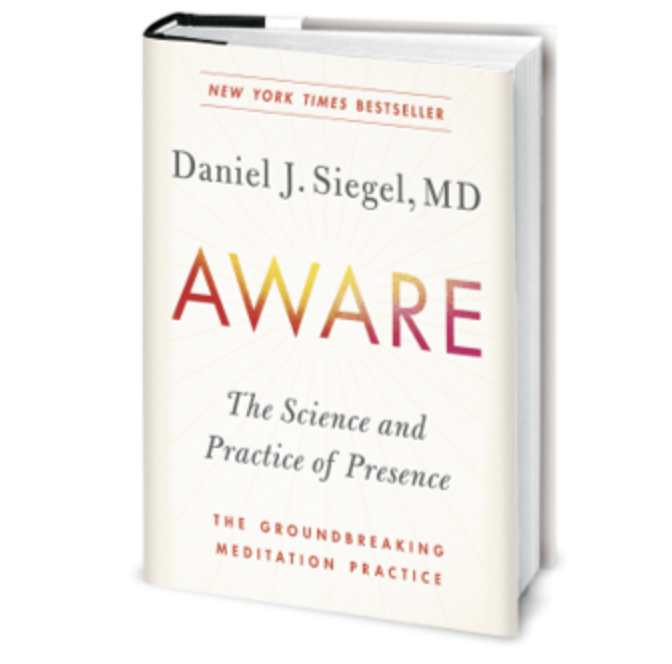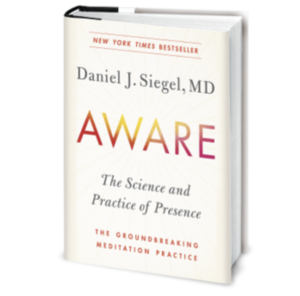

Siegel begins with the stories of five people at different life stages and in different and challenging circumstances. These individuals’ lives were greatly improved by committing to Siegel’s “Wheel of Awareness” practice. The practice is premised on the idea that, “where attention goes, neural firing flows, and neural connection grows” (P.19)—i.e., that what our mind does changes how our brain behaves and this can have enduring effects on how we act and who we are. He argues that human experience is shaped by interactions among our bodies, brains, minds, and social relationships. Each of these forces contributes to our continually emerging sense of self (i.e., self as a verb rather than a noun).
Siegel offers tips for how to prepare one’s mind to meditate and how to focus on one’s breath. He then explains that the wheel practice involves guided shifts in attention. The first step is to attend to one’s breath, then to each of the five senses, then to internal bodily signals (e.g., signals from the heart). Next, the practice involves attending to one’s active thoughts, feelings and memories, and generally to the content of one’s awareness. The final steps involve opening oneself to connections with others, and focusing on wishes of happiness, health, safety, and flourishing for others.
We are often led to believe that we are each alone. Siegel argues that this not only causes suffering, but also is inaccurate. We are inherently social creatures and are deeply connected to one another. Our compassionate connections with others powerfully shape our mind and identity. When we share ourselves with others we all benefit. Laughter among friends, for example, helps us be in the present moment, be open to learning, and mitigates suffering.
Although many people believe the brain gives rise to the mind, Siegel offers compelling neuroscientific evidence that the body also contributes meaningfully to the construction of the mind. Further, the mind can change the body and brain. For example, experiences of trauma, especially in early life, can shape how people behave and the ways in which regions of their brain communicate. Working to heal the effects of trauma and finding meaning in life gives the individual renewed personal strength and also can move the brain to become more integrated.
Drawing parallels from quantum physics theories about energy flow, probability, and the malleability of space and time, Siegel offers intriguing novel suggestions about the mind, consciousness, and the way we experience reality. He argues that mental illness or anguish is often characterized by rigid or chaotic thinking. Releasing the brain from its typical conscious experiences, thinking more freely, and striving for integration within ourselves and with other people can be therapeutic and helpful for making sense of an unpredictable world.
Aware and the related materials freely available on Siegel’s website offer readers an accessible, scientifically-informed meditative practice that can relieve suffering, increase mental strength, and improve health.
Siegel, D. (2018). Aware: The Science and Practice of Presence–The Groundbreaking Meditation Practice. New York, NY: Penguin Publishing Group.




